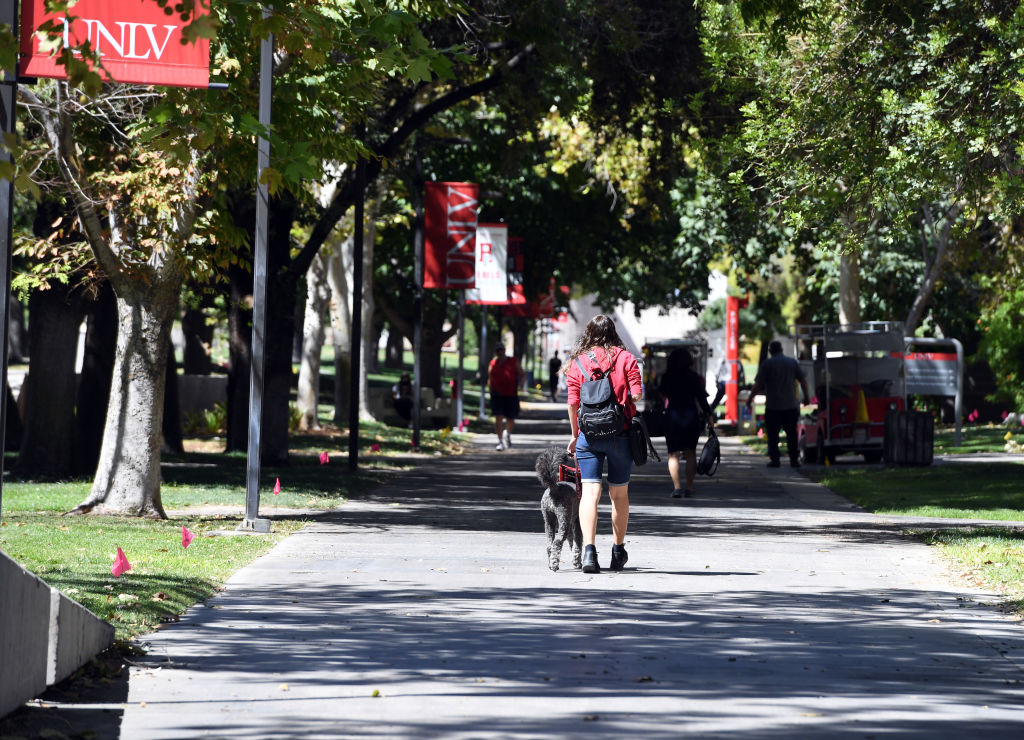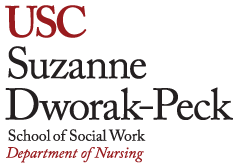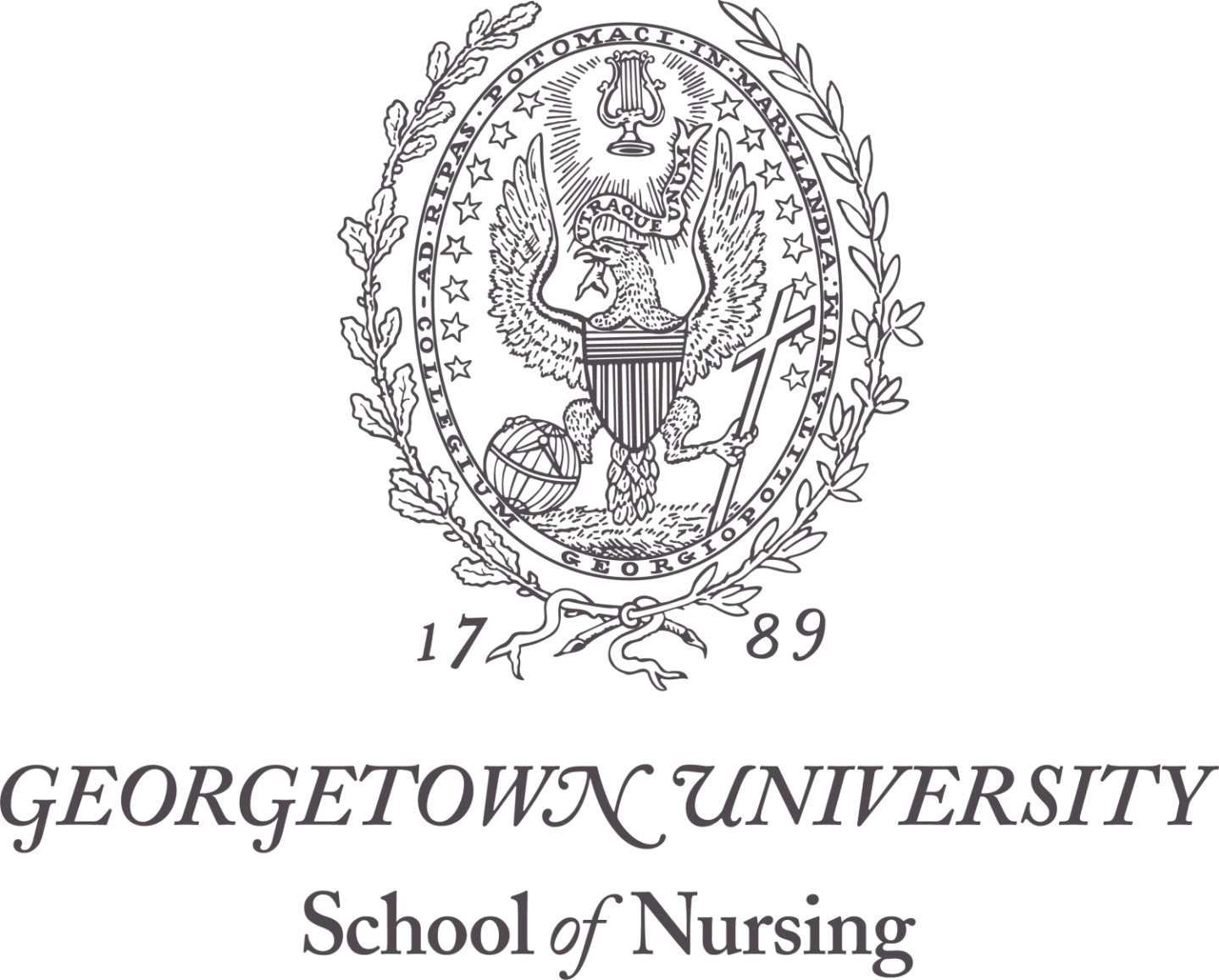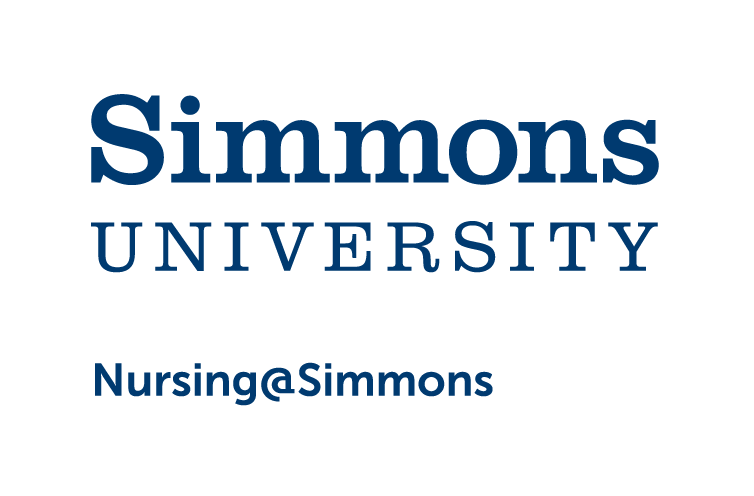The role of nurse practitioner, a subset of nurses qualified to work as primary and specialty care providers, is the fastest-growing occupation in the U.S.. By 2031, the U.S. Bureau of Labor Statistics projects a 46% growth rate in the number of nurse practitioner positions, compared with 2021. Now is clearly a great time to enter this rewarding and potentially lucrative field, and to do so, you’ll need a master’s in nursing (MSN), a degree that many universities offer online.
One of the nation’s leading online MSN programs is the University of Nevada–Las Vegas School of Nursing. In fact, it landed No. 1 in Fortune’s ranking of the best online MSN programs. The school currently offers three tracks: family nurse practitioner, psychiatric mental health nurse practitioner, and nursing education. All applicants are required to be registered nurses (RNs) with 2,000 hours of experience, and they should have a good idea of what they hope to gain from their degree.
“For most nurses who have an RN, it’s not just about advancement,” says Deven Richardson, the outgoing enrollment coordinator at UNLV’s School of Nursing. “Some of them want to go into their own practice. Some nurse practitioners can prescribe medication. They can work in the psych field. They can do a lot of things with their degrees, but they need those advanced credentials that a program like ours grants them.”
Earning these credentials from UNLV isn’t easy. Incoming students have an average undergraduate GPA of 3.62, and the school’s overall acceptance rate is 50.3%. Fortunately, there are ways to increase your chances of landing a spot in this prestigious program.
Through our conversation with Richardson, we came up with the following guide to getting in to UNLV’s online MSN program:
- Focus on more than your GPA
- Come with your “why”
- Pick the right recommenders
- Be ready for anything in the interview
- Check your eligibility
- Above all, come prepared
1. Focus on more than your GPA
If your undergraduate grades aren’t super impressive, don’t immediately throw in the towel. “What we try to do is look at the whole applicant and not just GPA,” says Richardson. “GPA isn’t always reflective of how well a student will perform in a program.”
In applying for the MSN program, you’re also applying to UNLV’s Graduate College, which considers students with GPAs of 2.75 and above. So as long as you meet that criteria, you have a chance with the School of Nursing. If your grades are on the low side, you might balance the scales with work experience. While the requirement is 2,000 hours of experience as an RN—roughly one year—some candidates come in with 20 years of hands-on nursing behind them.
Decades of experience—like a sky-high GPA—doesn’t guarantee entry. But it will give applicants a leg up. “They’ve shown they’re consistent in showing excellence in the nursing career field—they will most likely show excellence in the nursing program itself,” Richardson says. “We can at least look at them and say, ‘This person’s a very experienced nurse. We probably don’t have to worry about them too much.’”
2. Come with your “why”
As part of the application, you’ll need to write a 300-word personal statement about your career goals. The key with this prompt, Richardson says, is to “come with your why.”
“Why do you want to do this?” Richardson asks. “We don’t want a 15-page dissertation on why you want to be in the master’s of nursing program. That’s not going to help anybody. Just come prepared with what you’re looking for. And because nurses are who they are, many are prepared to state in 300 words why they want to do this.”
It’s also crucial to tailor your statement to the program you’re applying to. If it’s psychiatric mental health nurse practitioner, write specifically about this field and how your UNLV degree will help you on your path.
3. Pick the right recommenders
The UNLV application asks for three letters of recommendation—a sticking point for many students. “The letters of rec usually take the longest,” Richardson says. “It’s usually a function of people not being able to find the right people to do a letter for them. And it’s also a function of people just not doing it on time.”
To avoid scrambling at the last minute, Richardson suggests reaching out to four or five potential recommenders, just in case some are slow to respond. As for what types of people you should approach, Richardson cautions against asking friends and family.
“We want professional references,” he says. “A good reference comes from a faculty member from your [bachelor’s of science in nursing] program. If you have a good relationship with a professor from university, you are OK to ask them for a letter of rec. I promise they’re fine with it. They do it all the time. I know many faculty members who have a template for it.”
And of course, it’s good to find people who can speak to your nursing abilities. Consider former bosses and people you’ve worked with at hospitals or clinics. You want them to give a “professional view” of your skills, and if they can discuss your leadership abilities, that’s even better.
“A big conversation right now is a lack of leaders in the nursing field, so they’re always looking for people willing to step up and take on more,” Richardson says. “People who can point out and say, ‘Hey, I’ve seen this person. They’re great under fire. They’re capable of doing the work that’s required from them’—that’s just a great benefit when you’re applying to any program.”
4. Be ready for anything in the interview
If your application makes it through the first round, you’ll take part in a video interview. You won’t actually be speaking to another person. Instead, you will give you a series of randomized questions tailored to the program you’re applying to and you’ll respond to the prompts.
“As I said, we try to look at the whole entire applicant,” Richardson says. “That’s what the interview helps with. You can’t really get a good encapsulation of a person just on some documents they submit. Having them go through the interview process gives us a more well-rounded view of our applicants.”
“Make sure you’re coming prepared for an interview,” Richardson adds. “We don’t know the questions beforehand. We won’t tell you the questions beforehand. [Applicants] need to be ready for whatever they’re coming across. They’re nurses, and they’re going to come across some unexpected things in the field.”
5. Check your eligibility
For a variety of complex regulatory reasons, UNLV can’t accept students from all states. For example, the family nurse practitioner and psychiatric mental health nurse practitioner tracks are unable to admit students from California.
“Certain programs need to be authorized in a certain way, and it can be cumbersome, or it can just be difficult to do so because the state doesn’t have a nursing board, as Nevada does,” Richardson says.
It’s also worth noting that the family nurse practitioner and psychiatric mental health nurse practitioner tracks have clinical components that require students to perform hands-on nursing. UNLV will help students find clinical placements in Nevada, but things may get trickier beyond state lines.
“We have partnerships with certain states, but it’s easier if you are within the state of Nevada,” says Richardson. “I’d always recommend students reach out and say, ‘Hey, I’m in such and such state. Is your program approved within us?’ That way, they don’t run into any issues. There’s nothing more frustrating than applying for a program and then getting told, ‘I’m sorry, we can’t accept you because you’re out of state.’ No one wants that kind of time waste.”
6. Above all, come prepared
Richardson recommends that students not apply to UNLV until they’re totally ready. That means having all of their documents in order, but more importantly, it means being prepared to devote themselves fully to a challenging and time-consuming program.
“Come not just physically prepared, but mentally prepared,” Richardson says. “A lot of people who come to these programs have families. They have outside commitments. Consider all aspects of your life. A graduate program is a completely different sort of beast. There are a lot of things you need to consider before you commit.”
Check out all of Fortune’s rankings of degree programs, and learn more about specific career paths.







